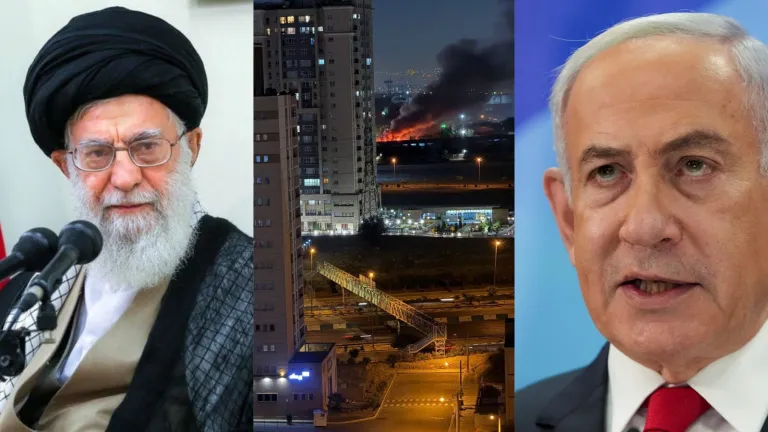
Israeli Air Force Launches Preemptive Strikes on Iran’s Nuclear Facilities Amid Rising Tensions
Tehran, Iran – June 13, 2025
In a dramatic escalation of longstanding tensions, Israel launched preemptive airstrikes targeting Iran’s nuclear facilities in the early hours of Friday, raising fears of a broader regional conflict. The Israeli Defense Forces (IDF) described the operation as a “precise, combined offensive” aimed at crippling Iran’s nuclear weapons program, which Israel deems an “existential threat.” Explosions were reported northeast of Tehran, with Iranian state media confirming disruptions, including the suspension of flights at Tehran’s Imam Khomeini International Airport.
Israeli Prime Minister Benjamin Netanyahu, who has long vowed to prevent Iran from acquiring nuclear weapons, justified the strikes, stating, “The Iranian regime’s ongoing aggression and pursuit of weapons of mass destruction leave us no choice but to act in defense of our citizens.”
The IDF reported that dozens of fighter jets targeted nuclear sites, including suspected facilities at Natanz and Fordow, which are known for uranium enrichment activities. While the IDF did not confirm additional waves of attacks, analysts suggest the strikes may be the “first stage” of a broader campaign.
Iranian officials condemned the attack as a “flagrant violation of sovereignty” and vowed a “proportionate response.” Iran’s Defense Minister Aziz Nasirzadeh warned that Tehran’s military is prepared to retaliate, potentially targeting Israeli infrastructure.
Iranian state-run Nour News reported no immediate casualties but noted significant damage to unspecified sites. Iran’s Supreme National Security Council claimed it possesses “strategic intelligence” on Israeli nuclear facilities, hinting at possible counterstrikes against Israel’s unacknowledged nuclear arsenal.
The strikes come amid stalled U.S.-Iran nuclear negotiations, with a sixth round of talks scheduled for Sunday in Oman. U.S. President Donald Trump, who has pushed for a diplomatic solution to curb Iran’s nuclear ambitions, expressed frustration, stating, “I don’t want to see a massive conflict, but Iran cannot have a nuclear weapon.” Trump confirmed the partial evacuation of U.S. personnel from the Middle East, citing fears of Iranian retaliation. U.S. Secretary of State Marco Rubio denied direct U.S. involvement in the Israeli operation but noted that American intelligence could have supported Israel’s planning.
International reactions were swift. Germany’s Foreign Minister Johann Wadephul, who is set to visit Israel on Sunday, reiterated Berlin’s stance against Iran acquiring nuclear weapons, urging de-escalation. The International Atomic Energy Agency (IAEA) expressed concern, with Director General Rafael Grossi warning that such strikes could push Iran to accelerate its nuclear program or withdraw from the Nuclear Non-Proliferation Treaty. Iran’s enrichment of uranium to 60% purity—close to weapons-grade—has been a focal point of global scrutiny, with recent IAEA reports highlighting Tehran’s non-compliance.
Military analysts noted that Israel’s October 2024 strikes on Iran’s air defenses likely facilitated Friday’s operation by reducing risks to Israeli jets. However, destroying Iran’s deeply buried nuclear facilities, such as Fordow, would require sustained attacks and possibly U.S. military support, which the Trump administration has so far withheld. Experts warn that partial damage could drive Iran’s program underground, making it harder to monitor.
The strikes have heightened global anxiety about a potential regional war. Israel’s Defense Minister Ian Katz warned of an expected Iranian missile and drone attack on Israeli civilian areas in the “immediate future.” Israel has placed its military on high alert, with air defenses bolstered in anticipation of retaliation.
As the world watches, the delicate balance between diplomacy and military action hangs in the balance. The coming days will likely determine whether this strike marks the beginning of a wider conflict or a turning point in the decades-long standoff over Iran’s nuclear ambitions.






